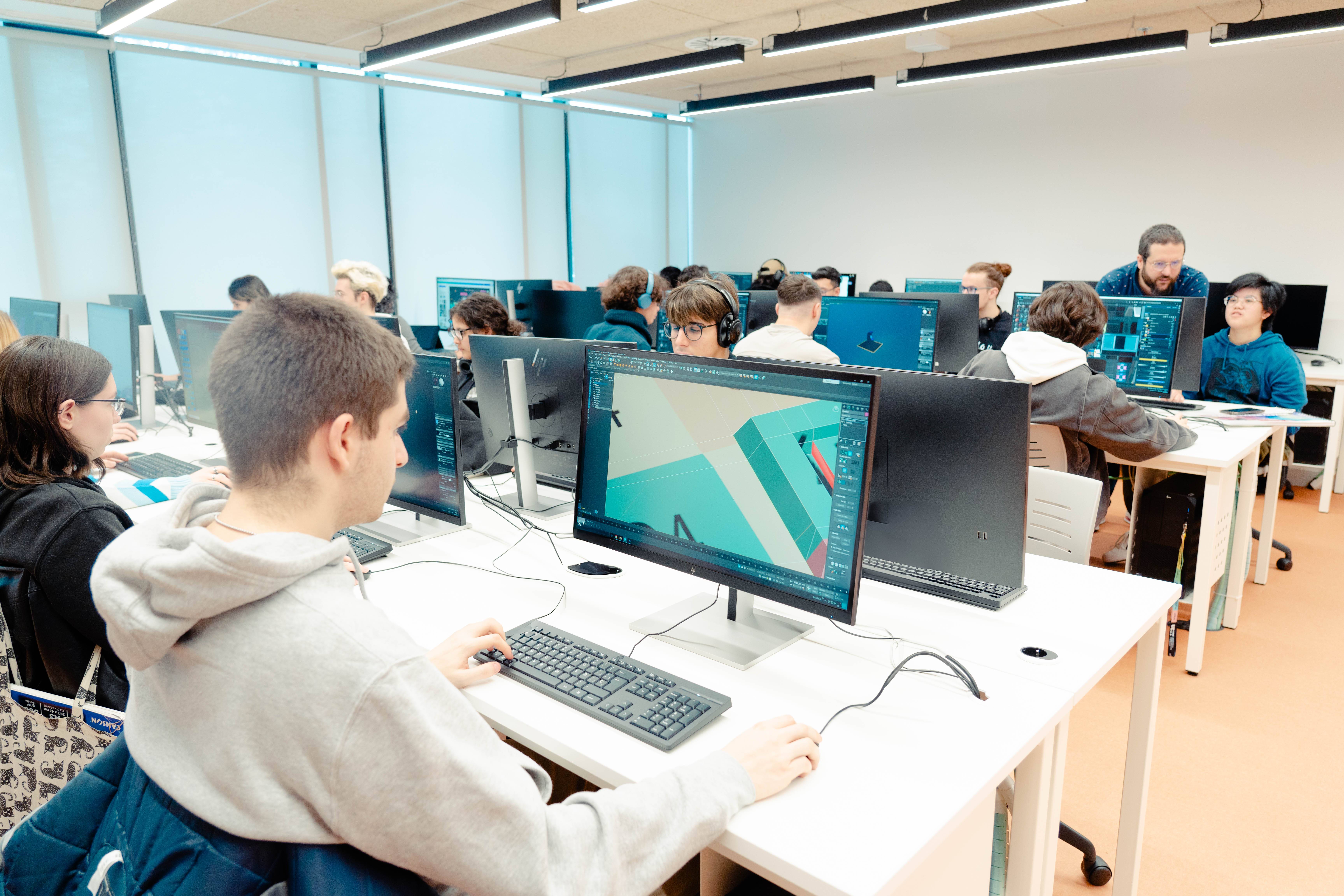Why study Vocational Education and Training at a university?
In recent years, Vocational Training has established itself as a strategic academic option for those seeking technical, employability-oriented training adapted to the demands of the market .
A recent study by the Madrid Chamber of Commerce highlights how VET graduates have higher than average employment rates, reaching up to 73% in intermediate cycles and up to 82% in higher cycles.
This has led to a significant increase in the number of students enrolled in Vocational Training, with a growth of 35.3% in the last five years. This same report shows that during the 2023-2024 academic year, a total of 1,132,364 enrolmentswere reached , which represents an increase of 4.9% compared to the previous year. Within this growth, higher degrees have been the most outstanding, with an increase of 5.3%, reaching a total of 589,461 students.
This boom in demand for Vocational Training has been accompanied by a significant expansion in the number of centres offering this type of education. In fact, there are more and more universities that are committed to integrating vocational training cycles into their offer, aware of their strategic value.
But what are the advantages of studying a vocational training degree at a university, and how does this training experience differ from other centres? Beyond the official curriculum, studying vocational training in a university environment offers a series of advantages that make a significant difference in the preparation and projection of the student.
1. Access to higher level training resources and environments.
Studying a Vocational Training Cycle at a university allows students to train in technologically advanced facilities, with access to laboratories, professional equipment andtools of the highest quality.
The UDIT Higher Vocational Training facilities are located in the UDIT Campus of Technology, Innovation and Applied Sciences, a building of more than 7,000 square metres where creativity, technology and collaboration converge.
Equipped with state-of-the-art classrooms, the Campus has been designed to be a key meeting point for the technological and scientific community, so it also hosts hackathons, congresses and conferences.
2. Closer proximity to industry and the labour market
Universities with an educational model linked to professional reality stand out for their direct relationship with the business world .
This connection is reflected in quality internship opportunities, projects developed together with companies from a wide variety of sectors and a constant updating of training programmes to respond to the real demands of the market. As a result, students find access to the world of work more agile, direct and aligned with the needs of industry.
In the case of UDIT, this is reflected in more than 2,400 collaboration agreements with companies of all kinds.
3. Teaching staff with a mixed profile: academic and professional
In many university environments, the teaching staff combines teaching experience with a solid background in the professional world, which guarantees a balanced training between academic rigour and the reality of the market .
This dual perspective allows us to bring to the classroom not only the necessary theoretical knowledge, but also a practical and up-to-date vision, enriched with real cases, ongoing projects and direct contact with industry .
At UDIT, more than 85% of the teaching staff is actively involved in the creative and technological industry, which allows students to become familiar with emerging trends, current methodologies and project-based work .
4. Academic continuity
Studying VET at a university facilitates the natural transition to higher education.
In this sense, students who wish to do so usually have the possibility of accessing a university degree in the same institution, also having previous knowledge of the campus, the training model and the university community in which they have developed their cycle.
At UDIT, this continuity makes it possible to design personalised career paths, combining degrees to achieve highly specialised profiles.
5. Guarantee of quality
Studying Vocational Training in a university environment means having the highest academic quality standards, rigorous assessment processes and institutional supervision that ensures the coherence, relevance and effectiveness of the contents taught.
At UDIT, the academic guarantee translates into personalised student monitoring, continuous improvement plans and pedagogical coordination aligned with the values of excellence and innovation that characterise the University. Furthermore, the curricular design of the training cycles is integrated in a global training strategy that connects transversally with the rest of the university degrees, ensuring coherence and future projection.
6. A university environment, from day one
Finally, studying vocational training at a university gives students the possibility of integrating into the university ecosystem from day one. This means access to common services such as libraries, specialised laboratories and state-of-the-art digital resources, as well as participation in academic and cultural events that enrich the learning experience.
Likewise, students can get involved in extracurricular activities, student associations, conferences, workshops or company days, which multiplies their learning opportunities and the creation of a network of professional contacts .









